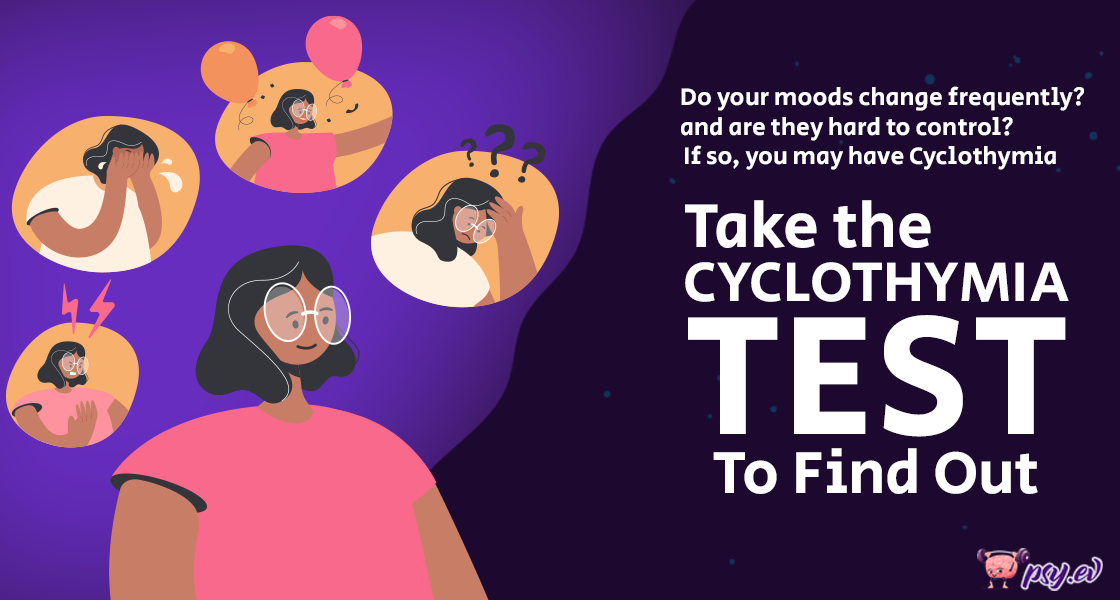What is Cyclothymia
Cyclothymia is a mood disorder that is characterized by periods of hypomania and periods of depression. Cyclothymia is similar to bipolar disorder, but the symptoms are less severe. Cyclothymia usually begins in adolescence or early adulthood, and it can be a lifelong condition. Cyclothymia can cause problems with work, school, and personal relationships. There is no cure for cyclothymia, but the condition can be managed with medication and therapy.
Symptoms of Cyclothymia
Symptoms of cyclothymia can vary in severity, but usually involve a change in mood or energy levels. For example, someone with cyclothymia may be inappropriately happy or optimistic during a period of hypomania, and then feel excessively sad or hopeless during a depressive episode. Symptoms of cyclothymia can also include changes in sleep patterns, appetite, and activity levels. In some cases, symptoms may be so severe that they interfere with work, school, or social life. If you think you or someone you know may have cyclothymia, it is important to see a mental health professional for an evaluation. With proper treatment, people with cyclothymia can lead healthy and fulfilling lives.
Causes of Cyclothymia
While the exact cause of cyclothymia is unknown, it is believed to be caused by a combination of genetic and environmental factors. Studies have shown that cyclothymia runs in families, suggesting that there may be a genetic component to the disorder. However, it is also thought that stressful life events, such as trauma or loss, can trigger cyclothymic symptoms in people who are predisposed to the disorder. Treatment for cyclothymia typically involves medication and therapy. In severe cases, hospitalization may be necessary to prevent self-harm or suicidal thoughts. With treatment, most people with cyclothymia are able to live relatively normal lives.
Treatment for Cyclothymia
While the exact cause of cyclothymia is unknown, it is believed to be caused by a combination of genetic and environmental factors. Treatment for cyclothymia typically involves a combination of medication and psychotherapy. Medications such as antidepressants and mood stabilizers can help to even out mood swings and reduce the severity of symptoms. Psychotherapy can help patients to understand and cope with their condition. In some cases, hospitalization may be necessary if the person is a danger to themselves or others. With treatment, most people with cyclothymia are able to live relatively normal lives.
How to live with Cyclothymia
The symptoms of cyclothymia can be milder than those of other mood disorders, but they can still cause significant disruption to a person’s life. The good news is that there are effective treatments available for cyclothymia, and many people with this condition live happy, fulfilling lives. In order to effectively manage cyclothymia, it is important to understand the symptoms and seek professional help as soon as possible. With the right treatment plan in place, cyclothymia need not be a debilitating condition.
For more information check: how to live with Cyclothymia
Resources for more information
If you’re looking for more information on a particular topic, there are a number of resources you can consult. Depending on the nature of your inquiry, you may find books, articles, websites, or other materials to be helpful. Your local library can be a good place to start your research, as they likely have a wide variety of resources available. You can also search for books and articles online using databases such as Google Scholar or PubMed. If you’re looking for more general information, website such as Wikipedia can provide a helpful overview. Whatever your specific needs, there’s sure to be a resource out there that can help you learn more about your topic of interest.
Conclusion:
Cyclothymia is a mental health disorder that causes people to have mood swings. These mood swings can cause people to feel really good on some days and really bad on other days. People with cyclothymia often find it hard to live a normal life because their moods swing so much. However, there are treatment options available that can help people manage their cyclothymia. If you think you or someone you know may have cyclothymia, take our cyclothymia test to see if you meet the criteria for diagnosis. You can also visit our resources page for more information about this disorder.

